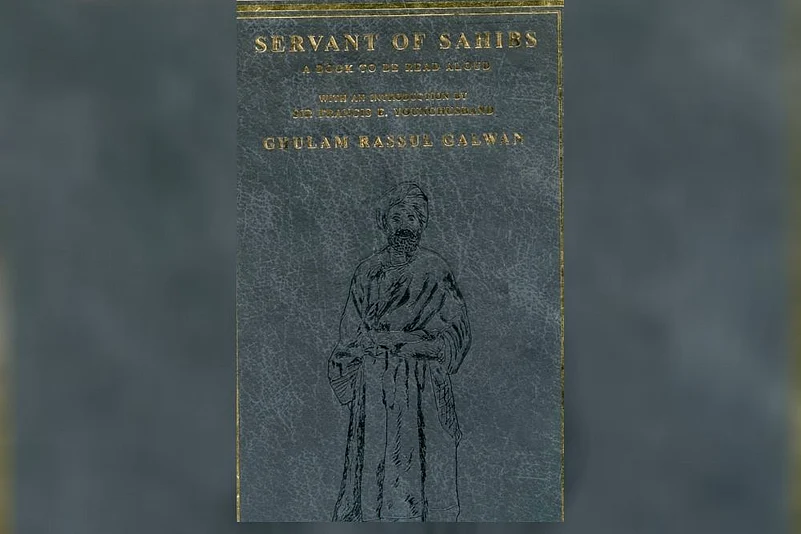As China and India stand-off continues in the Galwan Valley, Kashmir Valley’s social media feed is full with excerpts from a book, “Servant of Sahibs, A Book to be Read Aloud” written by Ghulam Rassul Galwan. The foreword of the book is written by British explorer and a leading figure in The Great Game between the British and Russia, Francis Younghusband.
The Indo-China stand-off in Galwan Valley reminds several social media users in Kashmir of Galwan's book. With the tensions flaring up along the Line of Actual Control, the book is being recommended and its soft copies are being circulated.
Advertisement
Many scholars in the Valley argue that Galwan Valley was named after explorer Ghulam Rassul Galwan. “The river Galwan originates from the Aksai Chin region and joins the Shyok river inside the territory claimed by India to form upstream tributary of the Indus river. What is lesser known is the fact that the river valley is named after a native explorer of Kashmiri descent Ghulam Rassul Galwan, whose forefathers belonged to the famed Galwan tribe of Kashmir,” writes Waris Ul Anwar, a Ph.D scholar at the department of history, Aligarh Muslim University in a Kashmir-based news portal.
Rassul, whose father was of Kashmiri origin and mother, a Balti, worked as an assistant for explorers who set British India’s northern borders. “His home is still intact in Leh,” says a Tourism Department official.
Advertisement
In his foreword of the book, Younghusband writes: “Why Himalayan peoples should be ready as they are to undergo hardships, and run risks of the most serious nature, in the service of stray traveller who appears among them is not easy to understand. The payment they receive is small. They have to work for much more than eight hours a day…Yet they readily work through long and arduous days and willingly risk their lives. And, most wonderful of all, they are full of gratitude to their employer when they leave his service. In this book we get an answer to the puzzle.”
“Written in faulty English, but with the instinct of a true artist, we see on every page the spirit which animated Rassul.”
Rassul, of course, begins his book in faulty English. “This told my mother. Long years before, in Kashmir hills, were herds of ponies belonging to Maharaja, and were very many people to watch to them, on those mountain pastures. One those people, after, become a robber. His name was Karra Galwan. Kara was his name (means: black). Galwan means robber.”
Rassul describes Karra as a strong and clever Galwan (robber), who robbed houses of rich. “Karra gave much money poor men. Rich men in Kashmir very hard men, never gave money to poor men.” Rassul says after the arrest of Karra, many of his family moved out of the Valley fearing Maharaja’s forces. He says one of his great grandfathers moved to Baltistan and from there to Leh.
Advertisement
While many in Ladakh maintain that the British named the place Galwan Valley after the explorer Rassul, others argue that some of the Galwans would use the route to rob caravans and hence earned such a name.
Many of Galwans moved to Yarkand in Xinjinag Uyghur Autonomous Region. Later, Rassul travelled to Yarkand with, what he says, “Captain Younghusband.”




















